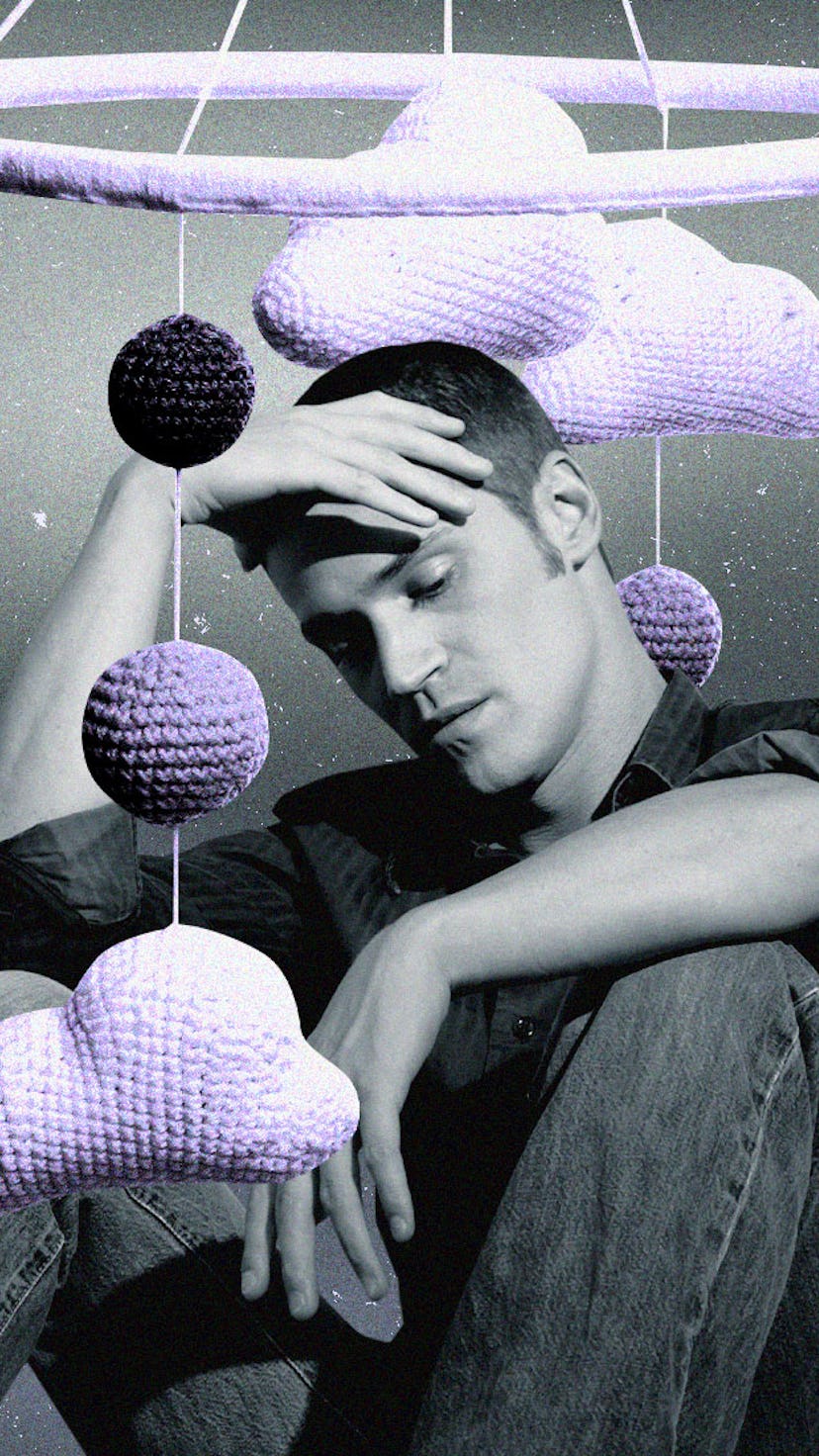Dads Who Embrace These Masculine Norms Are More Likely To Have Postpartum Depression
About 10% of dads suffer from postpartum depression, and embracing these two aspects of masculinity increases their risk.

Postpartum depression has long been treated as a devastating health issue that affects only moms. But it also effects about 10% of dads. And a recent study finds that men who embrace certain aspects of masculinity are more likely to develop postpartum depression.
For the study, published in August, researchers gave questionnaires to 118 first- and second-time dads, assessing depression symptoms, social support, and conformity to masculine norms. The vast majority of the men were white and straight, and all lived in the UK.
The research team found that men who adhered to the male-associated norms of self-reliance and putting work first were more likely to have symptoms of postpartum depression. Men who reported having a lot of social support, however, were less likely to have depression symptoms.
“I couldn’t tell [my wife] that I was depressed because I was so ashamed,” a father with postpartum depression previously told Fatherly. “I feared that if she knew how I felt that she would think less of me or leave me.”
The sentiment that hiding vulnerabilities is the best route is common among men, especially when it comes to emotions. But this is exactly the sort of self-reliance that the researchers found is linked with depression symptoms in new dads.
The research team also found that fathers with new sons were more likely to score higher in adhering to the tenets of masculinity, but they weren’t more likely to develop postpartum depression. Additionally, when mom had both physical and mental health conditions in the postpartum period, dad was more likely to have depression symptoms.
Postpartum depression in men in severely underdiagnosed. Healthcare professionals rarely ask about a new dad’s mental health. It doesn’t help that postpartum depression in men isn’t a medically agreed up diagnosis, or that men are often opposed to getting treated for their mental health issues.
But treating such struggles is incredibly important for dads — not only for their own wellbeing, but for the whole family’s. Kids of dads who are depressed during the postpartum period are more likely to have emotional and behavioral problems when they’re 3, 4, and 5. And another recent study found that when dads have depression, their kids are 42% more likely to develop depression themselves.
“Thinking about child outcomes, we thought historically that if mom is better, then the child is safe and well, and they will go through a normal development,” Sheehan Fisher, a professor of psychiatry and behavioral sciences at Northwestern University Feinberg School of Medicine, who was not affiliated with the study, told USA Today. “But if we treat the mom and the father is not well, then the child is at risk for mental health issues.”